Microsoft changed the design of the stop screen (also called the BSOD or Blue Screen Of Death). Instead of showing technical info with white letters on a blue background, Windows 10 shows a sad smiley and just the error code. But if you want to turn on the old style BSOD, need to edit the Registry and change two parameters. The methods works in Windows 11 and Windows 11.
Advertisеment
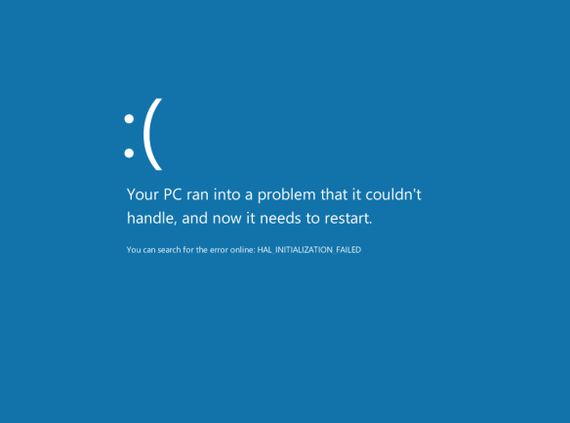 Microsoft simplified the bug check screen in Windows so it would be less scary to a casual user. However, if you do get a BSOD in Windows 11 or Windows 10, you would want to perform some troubleshooting to fix it. In this scenario, the sad emoticon is not helpful at all. Keeping this in mind, Microsoft made the classic BSOD available in both Windows 11 and 10.
Microsoft simplified the bug check screen in Windows so it would be less scary to a casual user. However, if you do get a BSOD in Windows 11 or Windows 10, you would want to perform some troubleshooting to fix it. In this scenario, the sad emoticon is not helpful at all. Keeping this in mind, Microsoft made the classic BSOD available in both Windows 11 and 10.Disable BSOD Smiley and Enable Details
To turn on crash details and hide the sad smiley on the BSOD screen, do the following.
- Type regedit in the Start menu and click on Open to launch the Registry editor.
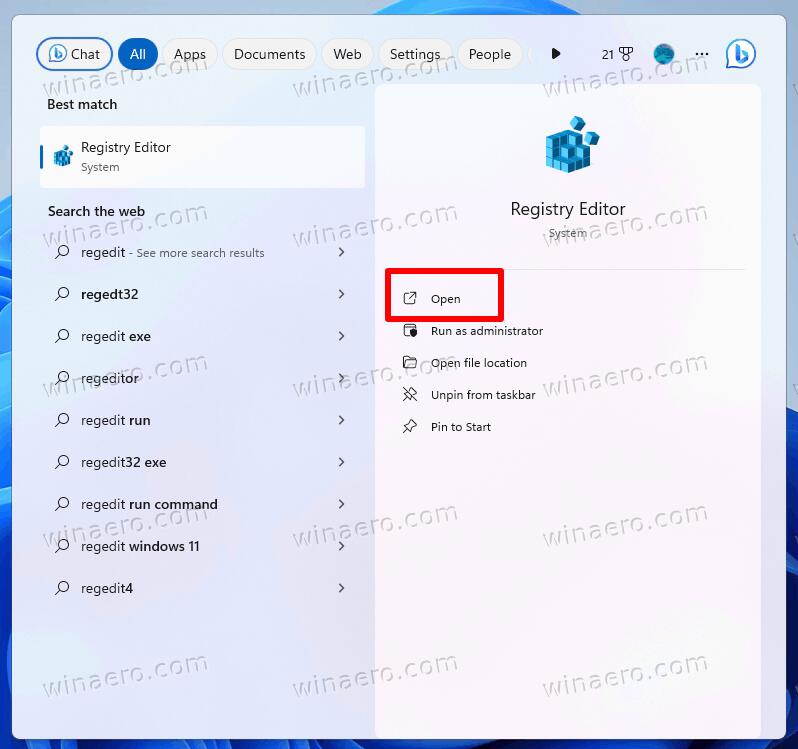
- Navigate to the following registry key:
HKEY_LOCAL_MACHINE\System\CurrentControlSet\Control\CrashControl. Tip: See how to open the desired registry key with one click. - Right-click the CrashControl key in the left pane and select New > DWORD 32-bit value.
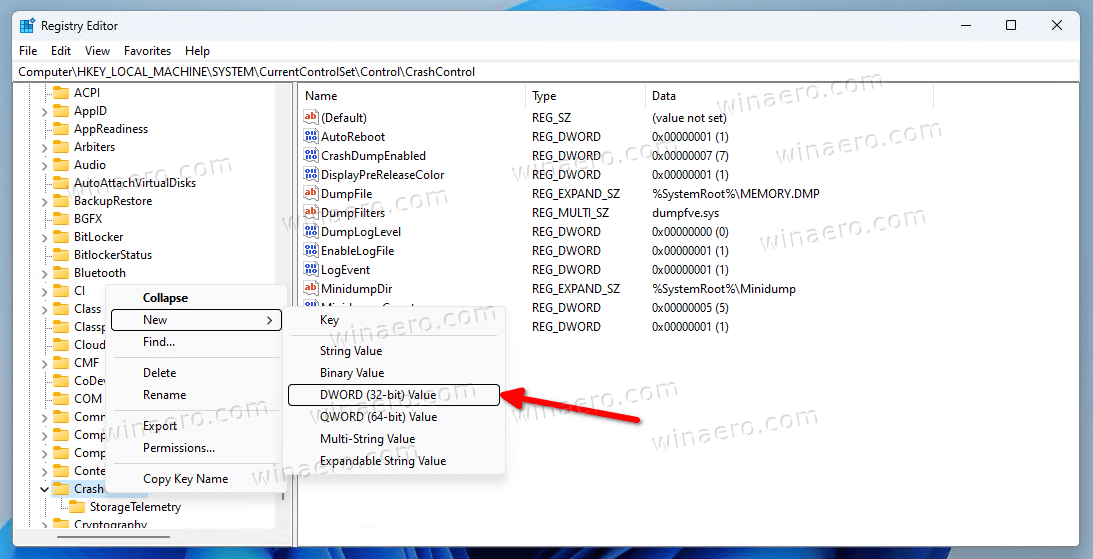
- Name it DisplayParameters, double-click and set its value data to 1 to enable crash details.
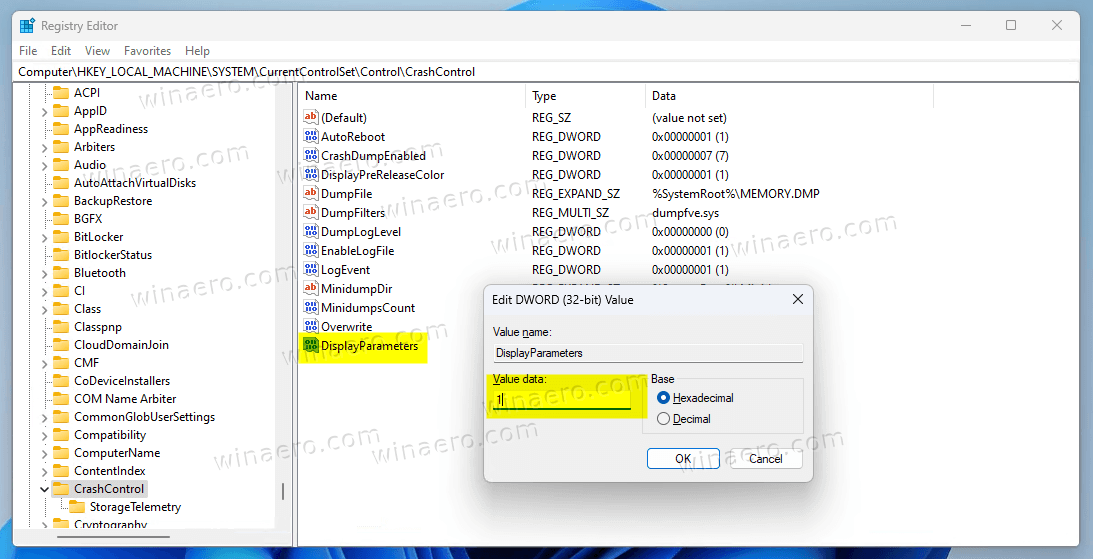
- Again, right-click the CrashControl key, and create one more DWORD value.
- Name the new value DisableEmoticon and set it to 1 to disable the emoticon.
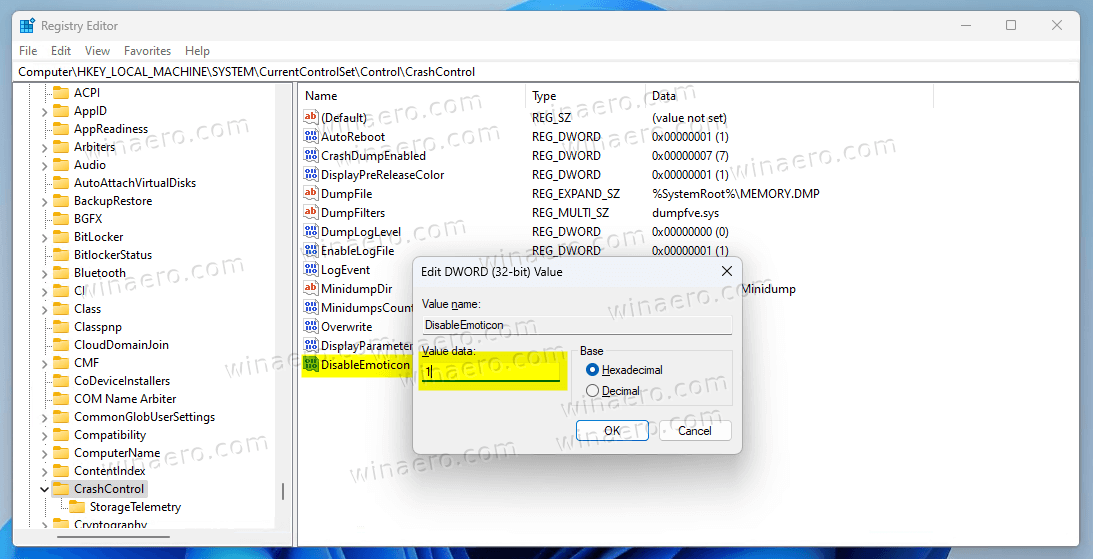
- Restart your computer for the changes to take effect.
That's it. The next time a serious error occurs, you will see the good old detailed stop information instead of the useless sad emotion on the Blue Screen of Death.
To save your time, you can use Winaero Tweaker. It has the appropriate option under the Behavior category:
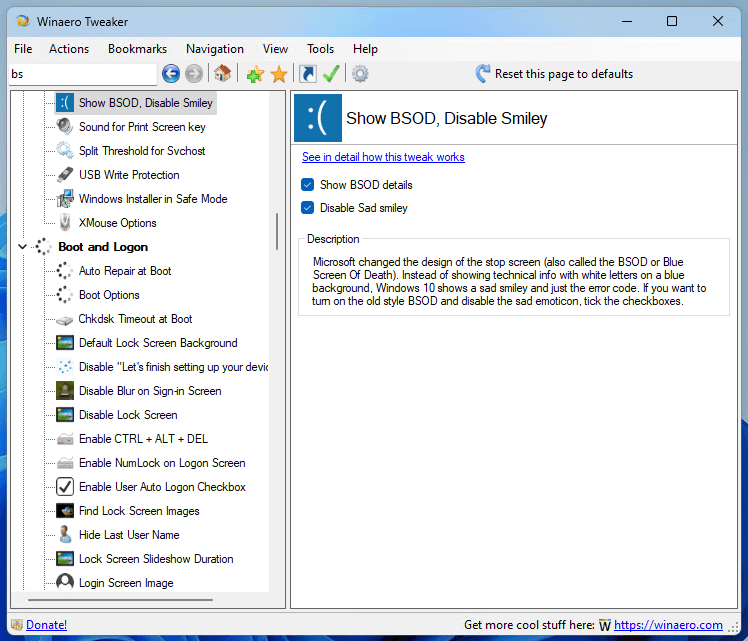
You can get the app here: Download Winaero Tweaker.
Bonus Tip: You can test how your BSOD looks like using the official tutorial from Microsoft.
How to trigger a test system crash
- Press Win + R keys together on the keyboard. The Run dialog will appear. Type the following in the Run box:
SystemPropertiesAdvanced
 Under Startup and Recovery, click Settings. Ensure that you have the automatic memory dump enabled under the Write Debugging Information section. Uncheck the Automatic Restart option.
Under Startup and Recovery, click Settings. Ensure that you have the automatic memory dump enabled under the Write Debugging Information section. Uncheck the Automatic Restart option. - If you are using a PS/2 keyboard, go to the following registry key:
HKEY_LOCAL_MACHINE\System\CurrentControlSet\Services\i8042prt\Parameters
Create here a value named CrashOnCtrlScroll, and set it to 1 to enable the keyboard-initiated crash.
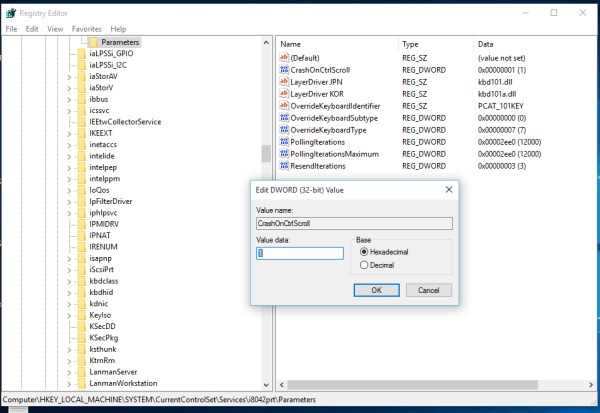
- With a USB keyboard which is what most computers have these days, create the CrashOnCtrlScroll value mentioned above at the following registry key:
HKEY_LOCAL_MACHINE\System\CurrentControlSet\Services\kbdhid\Parameters
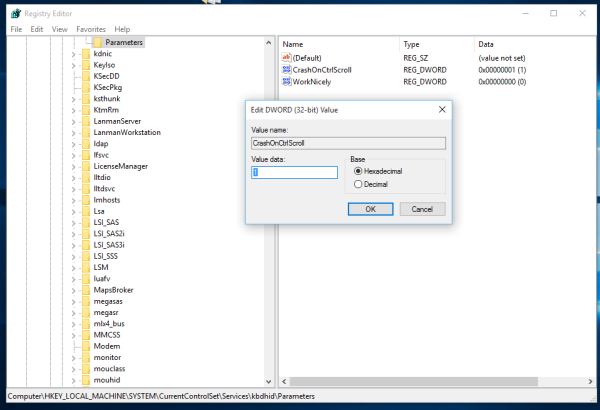
- Restart Windows for the settings to take effect.
- After restart, hold down the right CTRL key, and press the SCROLL LOCK key twice. This will cause a user-initiated BSOD.
That's it! This way you can see the changes you made. Luckily, modern Windows versions are solid rock stable and reliable, so you should not see this screen often. If your device has no hardware defects and the software is verified and stable, you may not see it a once.
Support us
Winaero greatly relies on your support. You can help the site keep bringing you interesting and useful content and software by using these options:

Actually, the “sad face” BSOD was introduced in Windows 8, not Windows 10 (which only inherited it). But I also like the old one better.
Yep you are right.
It still getting the sad face, but in top-left corner it shows 4 parameters of the error. The last error i got: SYSTEM_THREAD_EXCEPTION_NOT_HANDLED (dxgmm2.sys). help me?
uhmmmm THAT IS NOT GOOD. IDK BUT ITS BAD….
I think they mean you can enable it in windows 10
I know you just copied and pasted in the Windows 8 version of this page but you should really go weed it out. PS/2 keyboards? Most people don’t even know what those are. This article can really be streamlined.
So what you’re saying is that this article about un-dumbing-down the BSOD message should be dumbed down?
Most people who have any use for the old blue screens would know what a PS/2 keyboard is, at least. If you are a normal user you have no use for the general information and searching the Internet for the error would help more in that case. Wish I knew this was possible when I was messing with my RAM latency and speed.
Using Winaero Tweaker 0.6.0.7 to enable this doesn’t work on Windows 10 Build 14393 (Anniversary). Still gives the default look.
This doesn’t work. Still get the smiley.
This is a frowny, not a smiley.
Hi. Can you try to find another way to enable it? I think it’s been patched. It doesn’t work anymore. I’ve tried with the program and manually editing the registry, but it doesn’t work, I still get the new BSOD (which isn’t as fun as the other, because the old one used to scare me and the new one doesn’t…). If you can find another way, we’d appreciate it! Thanks!
It didn’t work it still showing sad smiley face, but in top-left it shows the 4 hexadecimal codes, help me?
Yes, that’s what I’m now seeing too.
I guess the “proper” old BSOD display has now been completely removed.
The documentation on the tweak on Winaero Tweaker should be updated to reflect this.
This article should be: Enable Crash parameters because it shows Crash parameters at the top of the sad siley.
Does it work in Windows 8.x ?
yep, this also works in Windows 8 and Windows 8.1.
This tweak actually shows error details on the top of the crash screen since there is no way to restore the old crash screen.
There is no way to remove the smiley in the crash screen. Enabling this tweak will instead show details on the top of the crash screen.